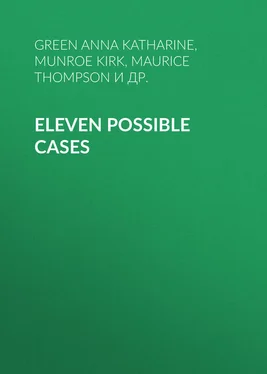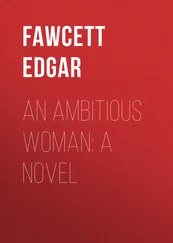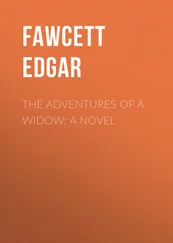Edgar Fawcett - Eleven Possible Cases
Здесь есть возможность читать онлайн «Edgar Fawcett - Eleven Possible Cases» — ознакомительный отрывок электронной книги совершенно бесплатно, а после прочтения отрывка купить полную версию. В некоторых случаях можно слушать аудио, скачать через торрент в формате fb2 и присутствует краткое содержание. Жанр: foreign_antique, foreign_prose, foreign_sf, на английском языке. Описание произведения, (предисловие) а так же отзывы посетителей доступны на портале библиотеки ЛибКат.
- Название:Eleven Possible Cases
- Автор:
- Жанр:
- Год:неизвестен
- ISBN:нет данных
- Рейтинг книги:4 / 5. Голосов: 1
-
Избранное:Добавить в избранное
- Отзывы:
-
Ваша оценка:
- 80
- 1
- 2
- 3
- 4
- 5
Eleven Possible Cases: краткое содержание, описание и аннотация
Предлагаем к чтению аннотацию, описание, краткое содержание или предисловие (зависит от того, что написал сам автор книги «Eleven Possible Cases»). Если вы не нашли необходимую информацию о книге — напишите в комментариях, мы постараемся отыскать её.
Eleven Possible Cases — читать онлайн ознакомительный отрывок
Ниже представлен текст книги, разбитый по страницам. Система сохранения места последней прочитанной страницы, позволяет с удобством читать онлайн бесплатно книгу «Eleven Possible Cases», без необходимости каждый раз заново искать на чём Вы остановились. Поставьте закладку, и сможете в любой момент перейти на страницу, на которой закончили чтение.
Интервал:
Закладка:
"His body was found this morning in the furnace of the steam boiler." O'Reagan resumed deliberately, "where it had evidently been placed in a vain attempt to destroy it."
A shudder went through Mary, and she convulsively wrung her small hands together, as though to limber them from a cramp. But her fingers went back to the key.
"The murderer has been discovered," the detective slowly continued, and the operator kept along with his utterance word by word. "He killed Ravelli for revenge. It was a love affair." Here the girl grew whiter still, and the clicks became very slow, but they did not cease. O'Reagan's voice was cold and ruthless: "The motive of the murderer was revenge. His name is Gerald Heath."
All but the name flashed off on the wire. Mary Warriner's power to stir the key stopped at that. She did not faint. She did not make any outcry. For a moment she looked as though the soul had gone out of her body, leaving a corpse sitting there. A grievous wail of wind came through the trees, and a streak of lightning zig-zagged down the blue-clouded sky.
"Go on," said O'Reagan.
"I will not," was the determined response.
"Why not?"
"Because it is not so. Gerald Heath never murdered Ravelli."
Gerald had stood motionless and silent. Now he gave way to an impulse as remarkable as his previous composure had been singular. If there had been stagnation in his mind, it was now displaced by turbulence. He grasped Mary's hands in a fervid grip; then dropped them and faced the others.
"I did not kill the Italian," he said. "He attacked me with my knife which he had stolen. In the struggle his hand was cut, but I took the weapon away from him. He quitted me alive and unhurt. I never saw him again. You don't believe it? Mary does, and that is more than all else."
"The circumstances don't favor you," the detective retorted, "they convict you. You killed Ravelli because you and he were both in love with this young lady."
"Isn't it the rejected suitor who kills the other one for spite?" This was in Mary Warriner's voice, weak, but still steady. "Ravelli loved me, I knew, and I drove him away. Mr. Heath loved me, I believed, and I had not repulsed him. If I were the cause of a murder between them, it should be Ravelli who killed Gerald."
"You detested Ravelli?" O'Reagan asked, with a strange bitterness.
"Yes."
"And you love Heath?"
The answer was no more hesitant than before; "Yes."
"Send the rest of my message," and the detective was boisterous. "Send the name. Gerald Heath is the murderer."
He roughly seized her hand and clapped it on the key. She drew it away, leaving his there. A blinding flash of lightning illumined the place, and what looked like a missile of fire flew down the wire to the instrument, where it exploded. O'Reagan fell insensible from the powerful electrical shock. The rest did not altogether escape, and for a minute all were dazed. The first thing that they fully comprehended was that O'Reagan was getting unsteadily to his feet. He was bewildered. Staggering and reeling, he began to talk.
Mary was first to perceive the import of his utterance. He was merely going on with what he had been saying, but the manner, not the matter, was astounding.
He spoke with an Italian accent, and made Italian gestures.
"You-a send ze mes-sage," he said; "Heath ees ze murder-are. Send-a ze mes-sage, I say."
Tonio Ravelli had unwittingly resumed his Italian style of English.
His plenitude of hair and whiskers was gone; and in the face, thereby uncovered, nobody could have recognized him in Detective O'Reagan but for his lapse into the foreign accent; and he said so much before discovering his blunder that his identification, as indeed Ravelli, was complete.
Who, then, was the dead man? Why, he was Eph.
Nothing but the fear of being himself condemned as a murderer of the maniac, as a part of the scheme of revenge against Gerald, induced Ravelli to explain. He had found Eph lying dead in the path, after both had parted from Gerald. The plot to exchange clothes with the corpse, drag it to the furnace, burn away all possibility of recognition, and thus make it seem to be his murdered self, was carried out with all the hot haste of a jealous vengeance. Ravelli was not an Italian, although very familiar with the language of Italy, and able, by a natural gift of mimicry, to hide himself from pursuit for a previous crime. Overlook had been a refuge until his passion for Mary Warriner led him to abandon his disguise. Thereupon, he had turned himself into Terence O'Reagan, a detective, whose malicious work wrought happiness for Gerald Heath and Mary Warriner.
A THING THAT GLISTENED
In the fall of 1888 the steamship Sunda , from Southampton, was running along the southern coast of Long Island, not many hours from port, when she was passed by one of the great British liners, outward bound. The tide was high, and the course of both vessels was nearer the coast than is usual – that of the Sunda being inside of the other.
As the two steamers passed each other there was a great waving of hats and handkerchiefs. Suddenly there was a scream from the Sunda . It came from Signora Rochita, the prima donna of an opera troupe, which was coming to America in that ship.
"I have lost my bracelet," she cried in Italian, and then, turning to the passengers, she repeated the cry in very good English.
The situation was instantly comprehended by every one. It was late in the afternoon; the captain had given a grand dinner to the passengers, at which the prima donna had appeared in all her glories of ornamentation, and the greatest of these glories, a magnificent diamond bracelet, was gone from the arm with which she had been enthusiastically waving her lace handkerchief.
The second officer, who was standing near, dashed into the captain's office and quickly reappeared with chart and instruments, and made rapid calculation of the position of the vessel at the time of the accident, making an allowance for the few minutes that had passed since the first cry of the signora. After consultation with the captain and recalculations of the distance from land and some other points, he announced to the weeping signora that her bracelet lay under a little black spot he had made on the chart, and that if she chose to send a diver for it she might get it, for the depth of water at that place was not great.
By profession I am a diver, and the next day I was engaged to search for the diamond bracelet of Signora Rochita. I had a copy of the chart, and, having hired a small schooner with several men who had been my assistants before, and taking with me all the necessary accouterments and appliances, I set out for the spot indicated, and by afternoon we were anchored, we believed, at or very near it. I lost no time in descending. I wore, of course, the usual diver's suit, but I took with me no tools nor any of the implements used by divers when examining wrecks, but carried in my right hand a brilliant electric lamp connected with a powerful battery on the schooner. I held this by an insulated handle, in which there were two little knobs, by which I could light or extinguish it.
The bottom was hard and smooth, and lighting my lamp I began to look about me. If I approached the bracelet I ought to be able to see it sparkle, but after wandering over considerable space, I saw no sparkles nor anything like a bracelet. Suddenly, however, I saw something which greatly interested me. It was a hole in the bottom of the ocean, almost circular, and at least ten feet in diameter. I was surprised that I had not noticed it before, for it lay not far from the stern of our vessel.
Standing near the rocky edge of the aperture, I held out my lamp and looked down. Not far below I saw the glimmer of what seemed to be the bottom of this subterranean well. I was seized with a desire to explore this great hole running down under the ordinary bottom of the sea. I signaled to be lowered, and although my comrades were much surprised at such an order, they obeyed, and down I went to the well. The sides of this seemed rocky and almost perpendicular, but after descending about fifteen feet they receded on every side, and I found myself going down into a wide cavern, the floor of which I touched in a very short time.
Читать дальшеИнтервал:
Закладка:
Похожие книги на «Eleven Possible Cases»
Представляем Вашему вниманию похожие книги на «Eleven Possible Cases» списком для выбора. Мы отобрали схожую по названию и смыслу литературу в надежде предоставить читателям больше вариантов отыскать новые, интересные, ещё непрочитанные произведения.
Обсуждение, отзывы о книге «Eleven Possible Cases» и просто собственные мнения читателей. Оставьте ваши комментарии, напишите, что Вы думаете о произведении, его смысле или главных героях. Укажите что конкретно понравилось, а что нет, и почему Вы так считаете.












